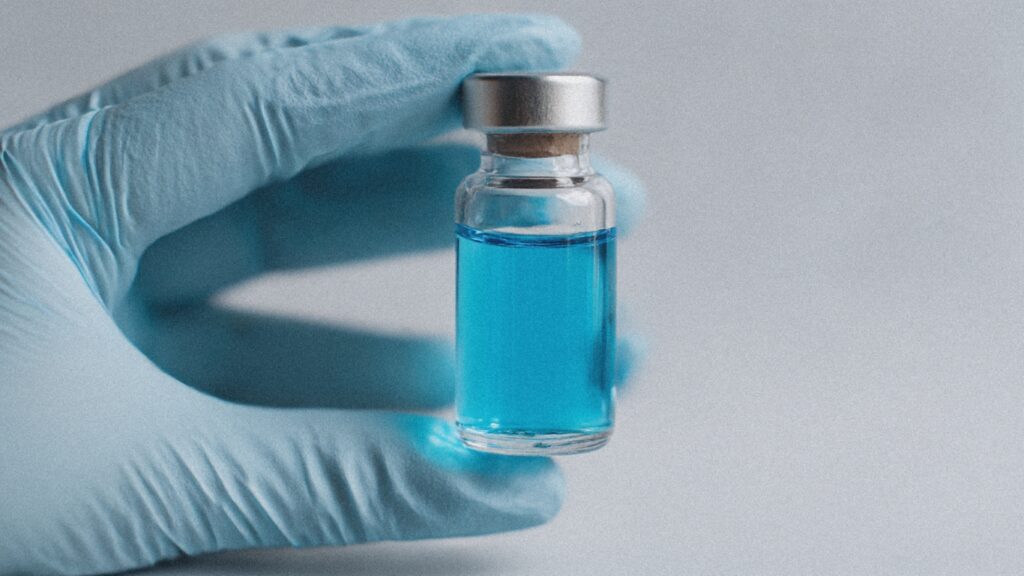The gene therapy space just got a massive validation with uniQure’s AMT-130 delivering unprecedented results in Huntington’s disease. Three-year data showing approximately 75% slowdown in disease progression sent shares skyrocketing over 250%, while also lifting device partner ClearPoint Neuro on the potential for widespread adoption of their intraparenchymal delivery system.
The Breakthrough Data
Huntington’s disease has been one of the most challenging neurological conditions to treat, with patients facing inevitable cognitive decline and motor dysfunction. AMT-130’s ability to slow progression by roughly three-quarters represents a paradigm shift in how we think about treating neurodegenerative diseases.
The gene therapy works by delivering a functional copy of the huntingtin gene directly to brain tissue, addressing the root cause rather than just managing symptoms. What makes these results particularly compelling is the sustained effect over three years, suggesting the treatment could provide long-term benefit rather than temporary relief.
Commercial Implications and 2026 Launch Strategy
uniQure is already positioning for a potential 2026 U.S. launch, with financing plans underway to support commercialization. This timeline is aggressive but realistic given the strength of the data and the urgent unmet medical need.
The commercial success will largely depend on several key factors:
Neurosurgical Capacity: AMT-130 requires direct brain delivery, which means specialized neurosurgical procedures. The availability of qualified surgeons and equipped facilities will be a major bottleneck for patient access.
Patient Identification Infrastructure: Huntington’s affects roughly 30,000 Americans, but identifying candidates early enough for maximum benefit will require robust genetic testing and neurological screening programs.
Payer Coverage: With likely pricing in the hundreds of thousands of dollars, securing payer coverage will be critical. The dramatic efficacy data should support premium pricing, but real-world economic studies will be essential.
ClearPoint Neuro: The Device Partner Opportunity
ClearPoint Neuro’s 250% stock surge alongside uniQure reflects the critical role of their stereotactic delivery platform. Their MRI-guided system enables precise placement of the gene therapy directly into brain tissue, a capability that could become essential infrastructure for the next generation of CNS gene therapies.
This partnership model highlights how device companies can capture significant value in the gene therapy ecosystem. As more CNS-targeted gene therapies advance through trials, ClearPoint’s delivery expertise becomes increasingly valuable.
Broader Gene Therapy Market Impact
The AMT-130 success comes at a crucial time for the gene therapy sector, which has faced safety concerns and mixed results across various programs. This data provides validation that properly designed gene therapies can deliver transformative clinical benefits in previously untreatable conditions.
For investors and industry watchers, the results reinforce several key themes:
- CNS Gene Therapy Viability: Direct brain delivery can overcome blood-brain barrier challenges that have limited systemic approaches
- Rare Disease Value Creation: Strong efficacy in small patient populations can support premium pricing and attractive returns
- Device Integration Opportunity: Specialized delivery systems become critical enablers rather than just tools
Regulatory and Development Pathway
The FDA has been increasingly supportive of gene therapies that address serious unmet medical needs, especially in rare diseases. AMT-130’s compelling efficacy profile should facilitate regulatory discussions and potentially qualify for expedited review pathways.
The three-year data also addresses one of the key regulatory concerns around gene therapy durability. Many early gene therapy programs showed initial promise but failed to maintain efficacy over time. AMT-130’s sustained benefit profile strengthens the case for long-term clinical value.
Investment and Partnership Implications
The dramatic stock response reflects broader investor appetite for validated gene therapy platforms. uniQure’s success will likely trigger increased interest in other CNS-focused gene therapy companies and could accelerate partnership discussions with larger pharmaceutical companies.
Big pharma has been cautious about gene therapy investments following several high-profile setbacks, but clear clinical success stories like AMT-130 could reignite M&A activity in the space. Companies with complementary CNS programs or manufacturing capabilities may become attractive acquisition targets.
Looking Ahead: Key Milestones to Watch
As uniQure prepares for commercialization, several key milestones will determine long-term success:
- Manufacturing Scale-Up: Gene therapy production remains complex and expensive. Demonstrating scalable manufacturing will be crucial for meeting demand.
- Regulatory Filing Timeline: The company’s ability to file for approval on schedule will impact competitive positioning.
- Payer Negotiation Outcomes: Early coverage decisions will set precedent for broader market access.
- Real-World Evidence Generation: Post-approval studies will be essential for confirming long-term safety and efficacy.
Conclusion
uniQure’s AMT-130 represents exactly the kind of breakthrough the gene therapy field needed. The 75% disease progression slowdown in Huntington’s disease validates the potential of direct CNS gene therapy delivery and provides a clear path to commercial success.
For patients and families affected by Huntington’s disease, these results offer genuine hope for the first time. For the broader gene therapy industry, AMT-130 demonstrates that properly executed programs can deliver transformative clinical and financial returns.
The 2026 launch timeline is ambitious but achievable, especially with the regulatory and commercial infrastructure rapidly developing around rare disease gene therapies. If execution continues at this level, AMT-130 could become a landmark success story that reshapes how we approach neurodegenerative disease treatment.



